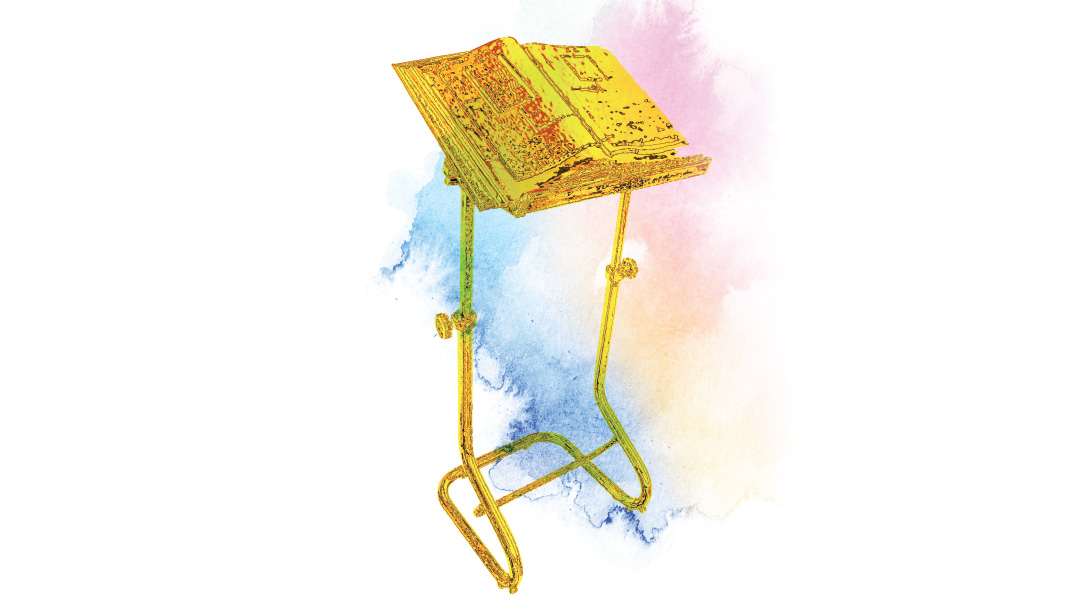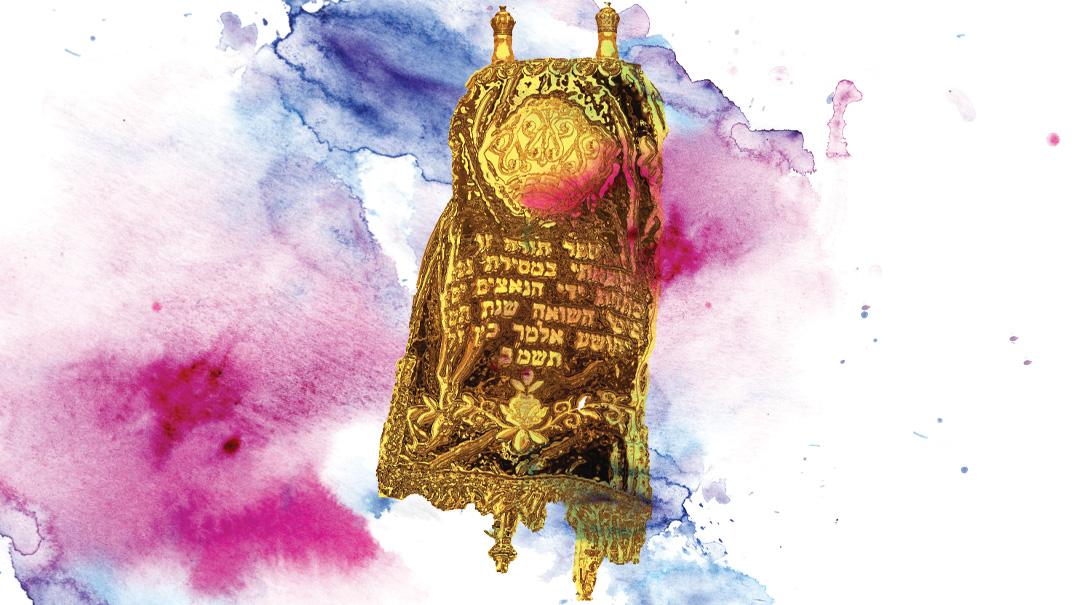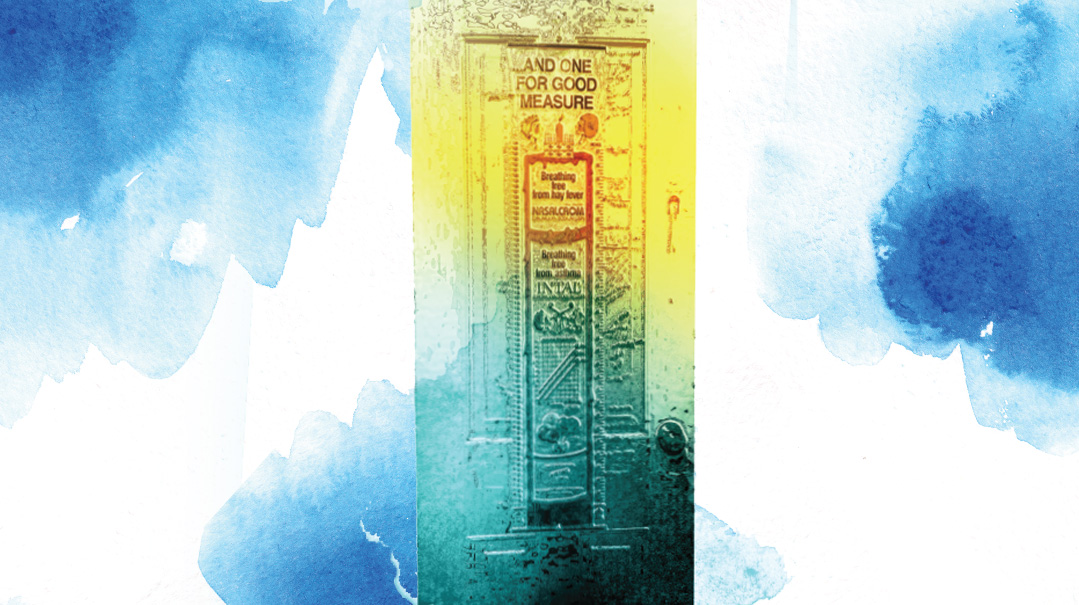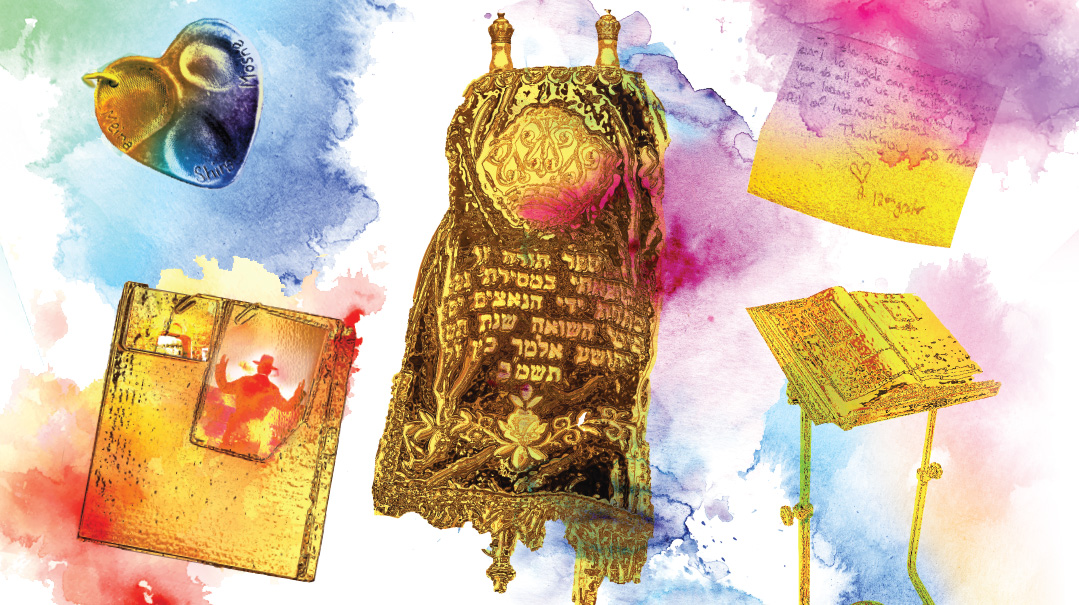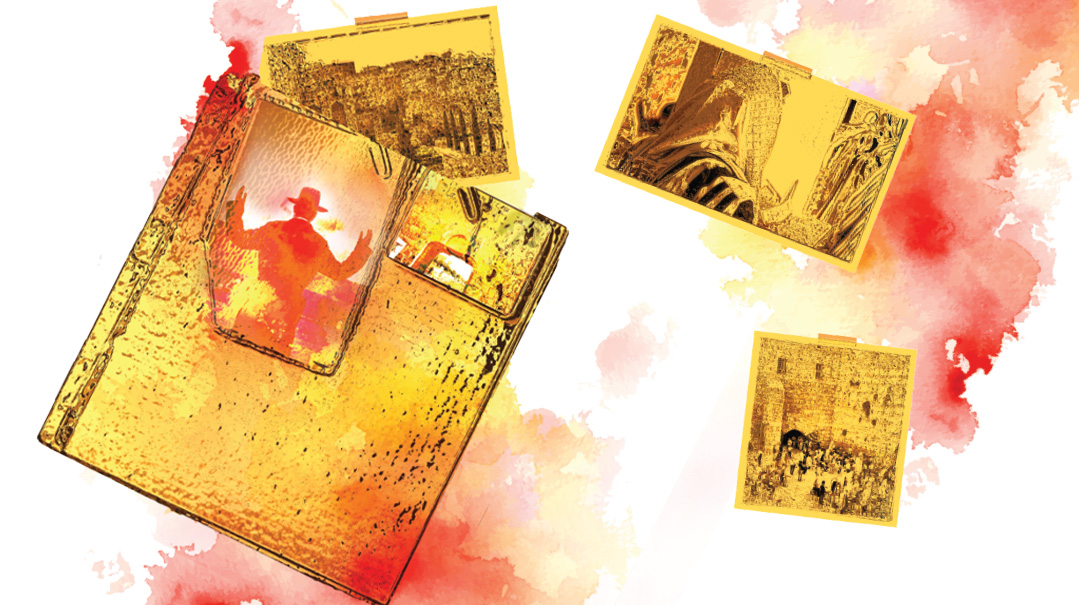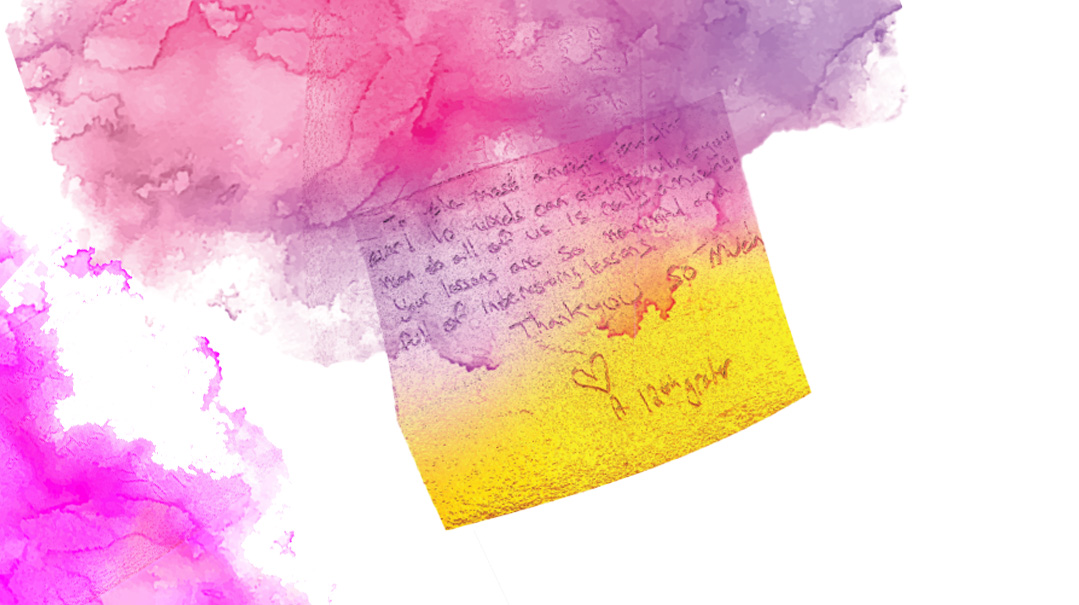From the Depths
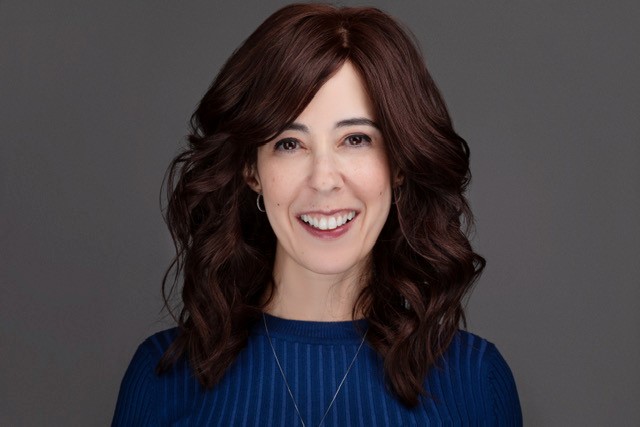
My wife saw it first. She returned home after work the following day and opened the door to the basement steps
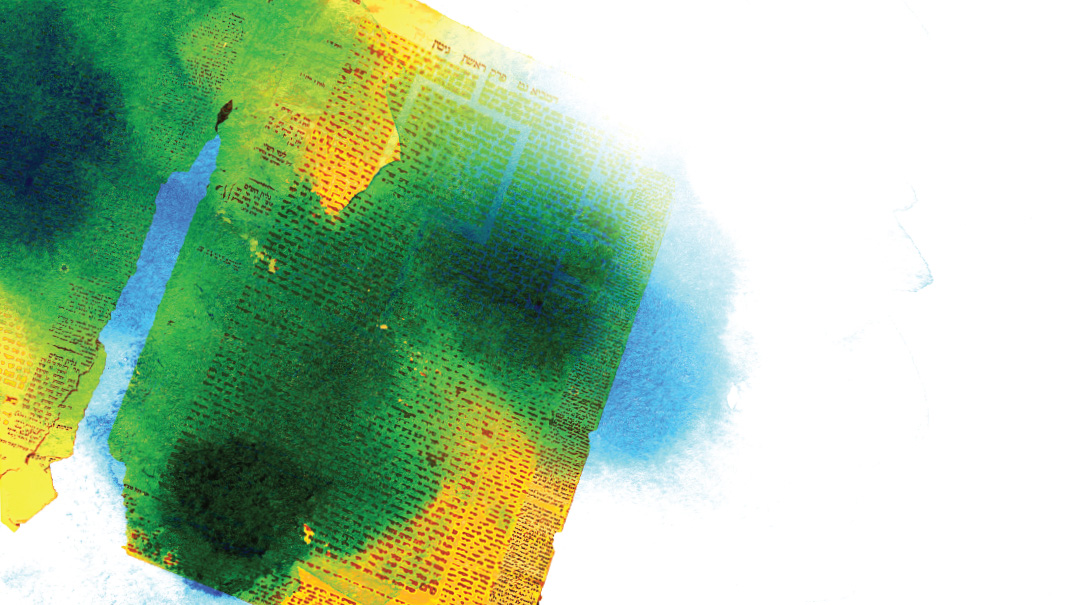
As told to Chaia Frishman by Yeshaya Kraus
IN August 2011, as Hurricane Irene approached the Bayswater section of Far Rockaway, New York, the local news agencies issued dire forecasts warning us to batten down the hatches and gird for the worst.
In our home, we barely felt the impact. There was a trickle of water in a spot that always leaked on rainy days. It was the storm that cried wolf.
That’s probably why we weren’t inclined to take Hurricane Sandy too seriously 13 months later. Once again, the news stations were blaring evacuation warnings, but we weren’t going to fall for that this time. We figured we’d go to my in-laws in Brooklyn for a night and come right back. We took things off the bottom shelves in the basement just to be yotzei, and we packed whatever we’d normally take for a two-day getaway with three kids — clothes, pajamas, pacifiers, certainly not our valuables. It wasn’t only us; the general feeling in the neighborhood was, “Yeah, right.” One of our neighbors didn’t plan on leaving at all.
The only special action I took was to stop into Home Depot on my way home the day the rain started. I wanted to buy a generator for the sump pump, just in case. They were sold out.
It wouldn’t have done much good anyway. No sump pump would have stood up to Hurricane Sandy. Between the drains backing up and the bay crashing through the backyard, we wouldn’t have gained more than a few extra minutes.
We hadn’t heard much about what happened, so we didn’t know what to expect — we certainly hadn’t heard about the full extent of the flooding.
My wife saw it first. She returned home after work the following day and opened the door to the basement steps.
The water was up to the top of the stairwell; the entire basement was filled with water to the ceiling. We had eight-foot ceilings down there, so that meant eight feet of water.
Our neighbor, who hunkered down at home and stayed on his second floor during the hurricane, later told us what he witnessed through his back window.
“The bay,” he said. “I saw the bay crashing through the backyards on the block.”
Every basement on our block was the same, completely flooded. Everything inside was lost.
A neighbor told me there was a guy in the neighborhood who had a generator and pump and was going from house to house, pumping the water out. Without him, I probably wouldn’t have been able to get into my basement for quite a while. Even after it was pumped, the water level rose again to about waist-height.
Over the course of a couple of days, I went wading down there to try to sort through what I could. It was impossible see anything in the dark and cloudy water, so I had to sift through it with my fingers. Under the toppled hardwood bookcase, I found a lot of soggy seforim. I was horrified to discover that most of my Gemaras from my years in yeshivah were underwater.
Let me explain. I write notes in my Gemaras, and I take my note-writing very seriously. I use a micro-point pen to write extremely small, neat notes in the margins. Those notes are how I keep track of where I’m up to, solidify my understanding of the sugya, and cross-reference between different sources.
There’s also a nice feeling of “I’ve been here before,” when I review the sefer and get to someplace that has notes and underlines and accompanying comments. They’re not necessarily the biggest chiddushim; my notes are how I connect with what I’m learning. It’s a fulfilling feeling to run across something that I wrote years ago and notice that I’m thinking the same way now, or that I disagree with something that I wrote then. A part of me also looked at these notes as something my kids would someday see. If they would go through my seforim, they would know I’d been there without me having to say a word.
In addition to the Gemaras, I also lost a Mesilas Yesharim that was full of such notes, and an old set of Tur and Shulchan Aruch, probably printed in the 50s, when seforim were built like tanks. I had bought it off of Yeshiva Darchei Torah, where I learned for high school beis medrash and kollel. They had originally belonged to my ninth grade rebbi’s rebbi, which I was very proud of. There were some notes in there too, as well as loose pages I had left in there for safekeeping.
Some of the seforim were a total loss, while others seemed salvageable. I left them outside on a laundry rack or with paper towels between the pages. But after a couple of days, it became obvious that wasn’t going to work. The community had organized a sheimos truck to drive around and pick up whatever needed burial. I felt torn between my desire to feel I could still save something and the pressure to face reality.
I decided I had to be realistic. I knew I wouldn’t be able to salvage anything complete, but I couldn’t just abandon the seforim either, so I began to rip out whatever pages I could. The few pages I managed to save were from the Gemara I had used in ninth grade, some from my third year in Beis Medrash, and from one of the years I was in kollel.
I walked down the street afterward, kind of shell shocked. A local rav, Rabbi Mordechai Groner, had decided to drive around serving coffee and muffins to those involved in the recovery effort. “For me, this is the worst part,” I told him. “We can buy new stuff, but the notes are gone.”
It was hard for me, not just because of the seforim themselves, but for what they represented. At the time, I was in the process of transitioning out of yeshivah. The seforim represented my time in yeshivah and my accomplishments there. Now all that was lost.
It’s been a few years since then. I keep the pages I saved in the back of my Gemara Gittin. Baruch Hashem, I have many new notes. I’m grateful for what I was able to save, and that I’ve been able to rebuild. Still, when I’m learning, I sometimes wonder what I wrote in the notes that were lost, and I feel bad that I don’t have anything to show for my time and effort.
I guess loss is part of life. We lose things we can’t imagine doing without. Even if we aren’t constantly engaging with them (I wasn’t learning Bava Basra 24/7 before the storm), knowing that it’s there is comforting. I could open it up if I wanted to and get that feeling of seeing an old friend. We all have things that make us feel safe, make us feel that life is just a little bit more friendly. When we lose it, it hurts. And even though we can’t imagine what life will be like without those things, we find a way to live a life we never imagined. We chart a new course. And sometimes, if we’re lucky, we find that just maybe, the most important parts of what we had aren’t so lost after all.
Yeshaya Kraus is a writer, speaker, and therapist who lives with his family in Far Rockaway, New York.
(Originally featured in Mishpacha, Issue 929)
Oops! We could not locate your form.

